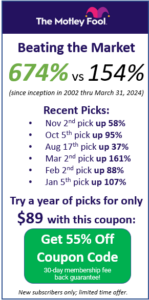Forex trading can be a thrilling activity that provides great opportunities to make money, but it can also be very stressful, especially if you’re very actively trading the market as a day trader does.
What is a day trader? A day trader aims to take advantage of price action fluctuations within a single trading session, closing out all his open positions before the session is over, starting fresh the next day. While day trading can be done in any market, it works best with very liquid markets, like the currency market (also known as the Forex or FX market).
If you want to become a successful Forex day trader, here are a few things you need to understand:
Know what influences the Forex market
You cannot trade the Forex market if you are not aware of the factors that influence currency values. Major Economic Indicators such as the GDP, the CPI, and the Unemployment Rate can help you get an idea of how well a given economy is doing. As these indicators greatly impact the currency market, it is extremely important to follow any economic and financial news and statistics that are scheduled during your trading sessions, as they can trigger higher volatility.
Choose your trading platform according to your needs
Choosing your broker isn’t an easy task, but it’s an essential part of your trading success, as you need to be sure the platform and trading conditions fit your investment style and trading needs. For instance, if you’re a trader using news trading, it would be best to pay fixed spreads, rather than variable spreads. Some brokers, including easyMarkets, do not adjust spreads based on markets conditions, as they believe you need to know in advance how much you will pay to open your trading positions.
Understand leverage and margin trading
Leverage and margin trading are powerful tools, tools you need to use wisely. Leverage magnifies price movements – thus amplifying your profits (and losses). Essentially, leverage allows you to borrow money from your broker. To open a trading position, you only have to put aside a small part of your position – this is called the “margin”. With leverage, you can take advantage of greater market exposure on each trade.
Develop a robust trading plan
While it seems obvious that you should create a trading plan, some traders believe it isn’t necessary to develop a structured method to trade, preferring to trade on instinct. However, the most successful day traders have trading plans, plans that they work on and update continuously.
Use effective money management
Money management rules are fundamental to your trading plan, as it can help you better protect your capital. Here are a few widely followed rules you might want to consider: only trade with money you can afford to lose, invest less than 2% of your total trading capital per trade, adapt the size of your position to the circumstances of each trade, use stop-loss orders, avoid averaging up/down, set a maximum loss per week (after which you take a break from trading), and take advantage of correlation for better portfolio rebalancing and diversification.
Have realistic expectations
Despite what you may think, Forex trading isn’t a get-rich-quick scheme – it takes time, energy and commitment to be a profitable trader over the long run. While trading can a very profitable activity, it isn’t the lottery. Having realistic expectations about how much money you can make, as well as being aware of the money you can lose, will help you move towards your trading goals and be consistently profitable.
Control your emotions
It can be very difficult to think rationally when it comes to trading, as money is on the line. You can easily be influenced by feelings like fear, greed, excitement, frustration or boredom, which can negatively impact your decision-making process. To avoid making any decisions in the heat of the moment, remember to follow your trading plan, no matter what. If you’ve earned (or lost) a lot of money, take a break and stop trading for a while.
You now have all the keys to become a successful Forex day trader, so get started to take advantage of the endless profitable trading opportunities of the Forex market.
Remember to test your trading plan before investing real money, and always protect your capital by following your trading plan and money management rules, and be patient, focused, disciplined and committed. Keeping a trading journal can also be very useful to review your previous trades and adjust trading parameters if needed, so then you can continuously improve your trading results.

 Stock Charts
Stock Charts Major Economic Indicators
Major Economic Indicators
